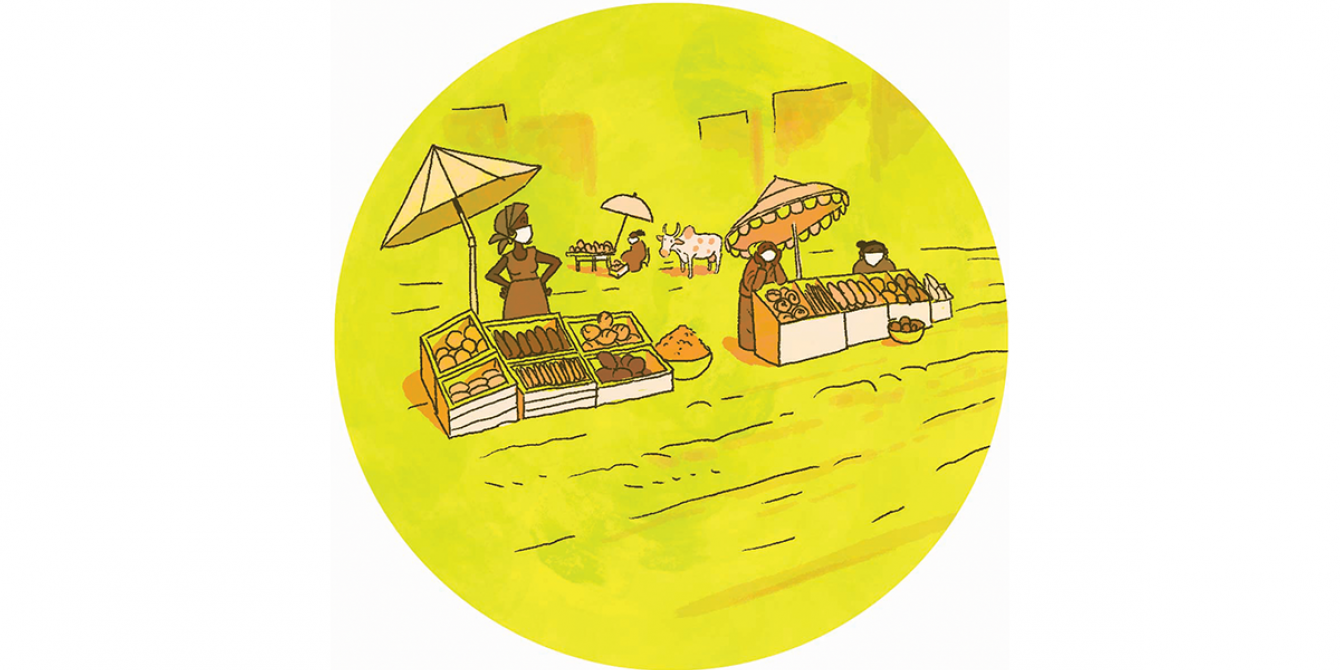FACT N°1 – Women face disruption to their economic activities

From the study: West African women facing COVID
FACT N°1 – Women face disruption to their economic activities
Because they are in the most precarious jobs in the formal sector and represent the main part of the informal sector in West Africa, women were greatly impacted by the consequences of the pandemic on economic activities.
The limited access to farm inputs (fertilizers, weed-killers) as a result of borders closure and increase in price has resulted in a productivity loss for women working in the farming sector. The high perishability of their goods (fruit, vegetables, and dairy products) and the lack of storage and retention capacities have resulted in poor sales, additionally with the closing of markets. In the fishing sector, women, who are the main actors of fishing goods’ commercialization, were unable to keep their products, which they usually sell within a day, because of a lack of logistics. In the livestock sector, the increase in the price of livestock feed and in crop production equipment resulted in an increase in production costs. The fear that the virus might be transmitted through animals, as well as the closure of markets, impacted the sale of cattle and products that comes from it (milk, butter, cheese). The lockdown of the main cities, which are the main consumers of milk caused huge losses in sales. Out of fear of not being able to sell their goods, small traders decided not to increase the price of their goods, despite the fact that the cost of raw material (such as manioc, flour, rice, and seasonings) increased, resulting in a financial loss for them. It became incredibly hard to repay loans, to respect contracts, and to obtain payments because of missed deliveries. In urban settings, women working as maids were particularly impacted by the crisis, in a sector which is already escaping official regulations. On various occasions, they were fired out of fear that they could bring the virus in their bosses’ homes and fueled a migration movement of poor urban working women towards the rural areas.
Far from giving up when losing their financial incomes, women organized themselves to tackle the situation through the adoption of different mitigation mechanisms, sometimes including negative coping solutions. In a lot of situations, women had to go into debt or use their savings, making their future even more uncertain. Massive savings’ withdrawals in credit unions in Senegal, whose members were women up to 80%, created in tensions in cash management. In Niger, women had to sell crops that were stored in their cereal banks before the dry season in order to feed the population. This resulted in financial losses and left the banks empty. Farming products were sold at a lower price, as well as cattle, in order to sustain the immediate needs of the households. Techniques of drying and transformation of perishable goods were implemented. Most of the women shifted their activities into designing and selling masks, hydroalcoholic gel, and washing hand products. In urban settings, mostly in Senegal, Ivory Coast, and Nigeria, the development of e-business and home deliveries were a way for women to keep their activities.
Testimony from Mrs. Toe Hazara, manager of the Café Rio dairy factory in Burkina Faso: “We have lost 75% of our business because of the lockdown of Bobo Dioulasso. This situation is unsustainable because we cannot cover the costs of our 13 staff and pay our suppliers.”
RECOMMENDATIONS
Despite their mitigation efforts, women continue to face numerous challenges and various needs. In the short term, governments should provide emergency and recovery funds for women cooperatives and women working in the informal sector. Interest-free loans (or loans with low-interest rate) should be granted by financial institutions, community microfinance should be supported and access to microcredit with convenient loan payment methods should be promoted. In order to restart their economic activities, the rescheduling of loans and the revision of interest rates is necessary for women. Authorities should adopt, if they have not already, strong social protection measures such as covering water and electricity expenses and should subsidize the price of basic commodities, and in some cases proceed to food distribution. For women to take opportunities from this crisis, they need to have business training in entrepreneurship or in emerging sectors such as e-business. Finally, this crisis highlights the lack of social protection systems in West Africa, whose implementation should become a priority for governments in the coming months.








 Suivez-nous sur Facebook
Suivez-nous sur Facebook Nos vidéos sur YouTube
Nos vidéos sur YouTube Suivez-nous sur Twitter
Suivez-nous sur Twitter